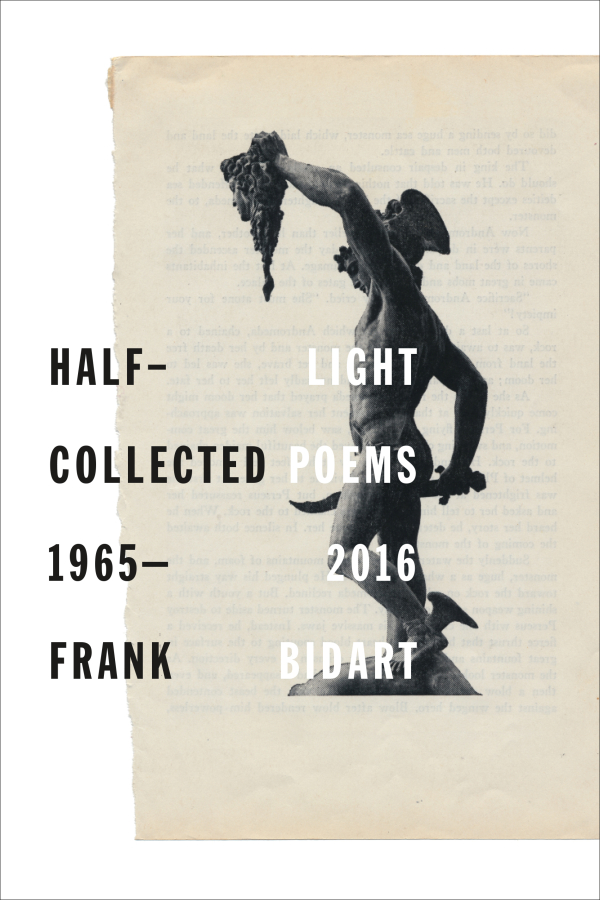Frank Bidart has long challenged readers — and convention — with a complexity and originality not often seen in American poetry. Now with “Half-Light: Collected Poems 1965-2016” (FSG), readers can gain a deeper understanding of how Bidart’s writing works together to create a vast, manifold narrative. The collection highlights the poet’s enduring themes and concerns, among them: desire and shame, the quest to find truth and freedom, and the duality of evilness and innocence. Bidart’s ability as a storyteller fuels many of these pieces, including his famous dramatic monologues about child murderer Herbert White, an anorexic woman named Ellen West and other unsettling figures. The speaker also looks unflinchingly at his own life and at the people who have shaped his perceptions, from his stifling mother and alcoholic father to the men he has loved and lost. Bidart’s signature collection, “Metaphysical Dog” (2013), which won the National Book Critics Circle Award and was a finalist for the National Book Award, has even more resonance here because readers can see all that led up to those poems, including “Queer,” where the speaker explains, “If I had managed to come out to my/ mother, she would have blamed not/ me, but herself./The door through which you were shoved out/into the light/ was self-loathing and terror.” The book closes with an ambitious section of new writing that deals with mortality and remembered friendships, a fitting way to end this monumental work.
• Mary Jo Salter’s “The Surveyors” (Knopf) is a delightful, elegant collection filled with insight about life’s unexpected twists. The book — her eighth compendium of verse — opens with a lovely poem about a yield sign that made her younger self ask, “to stay or to go?” That question is answered one page later when the speaker, now decades older, celebrates a surprising new love after an unexpected divorce. Wistful memories and sweet moments intermingle as she recalls what she has lost and how she has learned to heal herself, much like an aloe vera plant that seals up its own “broken fingertip — a low, but unbowed beauty/ in its handicap.” That kind of beauty runs throughout the poems, which recall lost years and lost opportunities and muse about how time speeds along. Salter skillfully uses rhyme and meter to, in effect, slow that progression. In the title piece — suggested by a reader and composed of several linked sonnets — she ponders important memories and notes how our fast-paced world is erasing much of what we’ve known: “If I wrote the poem you dreamed, would that imply/ we’d finalized my list? … For now, that’s why/ I’m sorry to say, ‘The Surveyors’ does not exist.”
• In “A Doll for Throwing” (Graywolf), Mary Jo Bang bends and tosses ideas as easily as one would a Wurfpuppe, a flexible doll created by Bauhaus artist Alma Siedhoff-Buscher that always landed with grace when thrown. Bang, whose honors include the National Book Critics Circle Award, presents challenging prose poems that analyze the past and the present through the ideas promoted by the German Bauhaus school of design, which sought to unify art and technically skilled craftsmanship in the early 1900s. The speaker, based on Bauhaus photographer Lucia Moholy,considers the spaces people inhabit, the mythologies we accept, and various kinds of building, in individual lives and the culture, while she searches for lost negatives.
In the poem “In the Street” she explains: “Unlike the law,/ architecture lasts. A facade, like an ideal, can be oppressive unless balanced by a balcony on which/ you can stand and call down to those in the street:/ Come over here and look up at us. Aren’t we/ exactly what you wanted to believe in?” The speaker reflects on political extremism, the expected roles of women and the fact that as we hurl forward into the unknown, “there is no turning back to be/ someone I might have been.”



